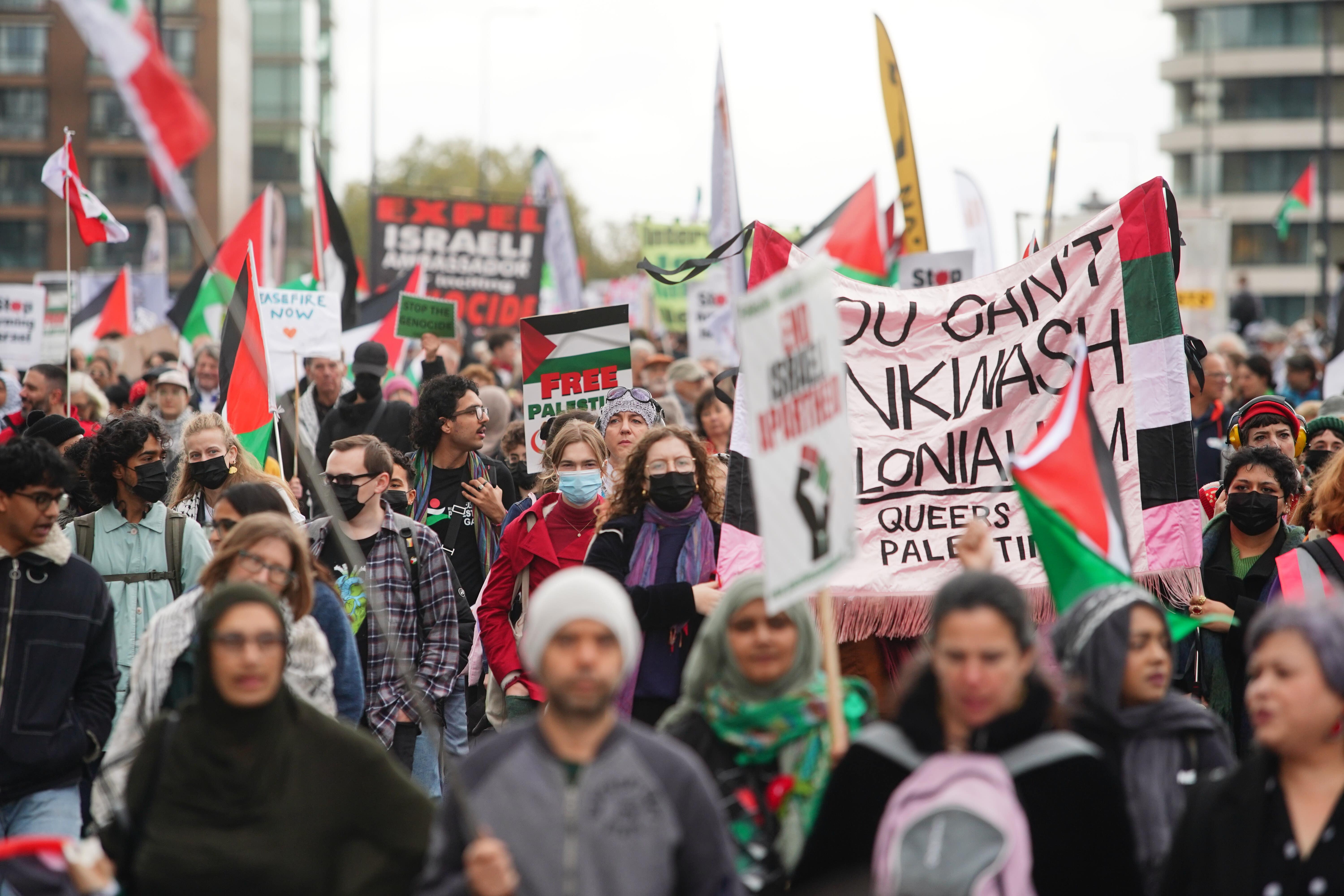Police block pro-Palestine protest from gathering close to London synagogue
The Met said it had ‘reflected on the views of local community and business representatives’.

Your support helps us to tell the story
From reproductive rights to climate change to Big Tech, The Independent is on the ground when the story is developing. Whether it's investigating the financials of Elon Musk's pro-Trump PAC or producing our latest documentary, 'The A Word', which shines a light on the American women fighting for reproductive rights, we know how important it is to parse out the facts from the messaging.
At such a critical moment in US history, we need reporters on the ground. Your donation allows us to keep sending journalists to speak to both sides of the story.
The Independent is trusted by Americans across the entire political spectrum. And unlike many other quality news outlets, we choose not to lock Americans out of our reporting and analysis with paywalls. We believe quality journalism should be available to everyone, paid for by those who can afford it.
Your support makes all the difference.The Metropolitan Police have blocked an upcoming pro-Palestine march from gathering near a synagogue in central London.
Protesters targeting the BBC were planning to gather outside Broadcasting House in Portland Place on Saturday January 18 before marching to Whitehall.
On Thursday evening, police said they had imposed conditions under the Public Order Act to prevent the rally from gathering in the area as it risked causing “serious disruption” to a nearby synagogue on a Saturday, the Jewish holy day, as congregants attend Shabbat services.
The Met said it had “reflected on the views of local community and business representatives”, including congregation members at a synagogue a “very short distance” from the proposed rally meet-up point, before reaching its decision.
Earlier this week, the force told the protest organisers, the Palestine Solidarity Campaign (PSC), to alter their plans to avoid disruption to worshippers at the synagogue and had threatened to impose the conditions to stop the rally.
In response to the Met’s demand, the PSC said on Wednesday it “utterly condemned” the use of “repressive powers”.
“The Palestine coalition rejects the implication that our marches are somehow hostile to or a threat to Jewish people.
“The Met Police have acknowledged there has not been a single incident of any threat to a synagogue attached to any of the marches,” the group added in a previous statement.
Commander Adam Slonecki, who is leading the policing operation in London that weekend, said the PSC had refused to change their plans and were “continuing to encourage protesters to form up in Portland Place”, giving the force “no choice but to use the powers available to us”.
He said: “The role of the police is to ensure that groups can exercise their right to peaceful protest, while also balancing the rights of those in the wider community to go about their lives without serious disruption.
“It is not our role to give permission for protests but we can use our powers under the Public Order Act to apply conditions to control start and finish times, routes, form up points and other details where necessary.
“Since October 2023 we have used these powers proactively on more occasions than at any other point in recent history.”
The Palestine coalition rejects the implication that our marches are somehow hostile to or a threat to Jewish people
He added that police had taken into account the “cumulative impact of this prolonged period of protest”, with events often taking place on Saturdays and near to synagogues.
“We know this has been a cause of increased concern for many Jewish Londoners who have altered their plans, avoided parts of central London and reduced attendance at religious services,” he said.
Mr Slonecki continued: “We police without fear or favour and this decision was taken based on a detailed consideration of the evidence, not any outside influence.
“Some of the media coverage today makes reference to a letter sent to us from MPs and peers raising concerns about this protest.
“I want to be clear that our position was decided and communicated with the PSC prior to us receiving that letter. It had no impact on our decision making.”